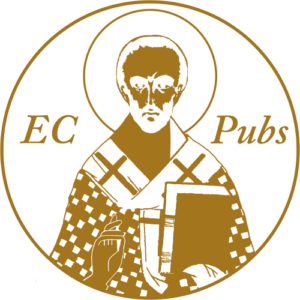Eastern Christian Publications is in the final stages of production of a facscimile reprint of the 1646 edition of the Trebnyk of Peter Mohyla, the Book of Sacraments and Blessings.
The Euchologion, called in most Slav languages the Trebnyk, is one of the most important Eastern Orthodox liturgical books. There is no standard edition of this book, which has a great many variations, particularly between the Greek editions and the Slavonic editions. In general, the Slavonic editions have a much richer content. The 1646 edition of Saint Peter (Mohyla) is a watershed in the development of Church-Slavonic editions, relevant to Russian and Ukrainian editions ever since – which is not to say that all these later editions reproduce all or part of the 1646 edition; most of them do not.
Some accusations about the Mohyla Trebnyk that are unfounded include:
1. The innovation of Baptism by infusion (rather than by triple immersion) is not found in this edition of the Trebnyk; to the contrary, Mohyla insists that Baptism must be done by triple immersion. This accusation is completely inaccurate, pure mythology.
2. It is true that the Trebnyk gives the so-called “marriage vows,” unfortunately. But this is not the first edition of the Trebnyk to give such “marriage vows”; I am tempted to suspect that the reason may have been caution to avoid attacks on the validity of marriages solemnized in Poland. It is more difficult to understand why Mohyla omits the partaking of the common cup by the bride and groom.
3. It is true that the Trebnyk gives a “formula of absolution” for use in the administration of the Sacrament of Penance, which incorporates the Latin, indicative “formula of absolution”. I have no idea why Mohyla found it good to do this, but he was not himself responsible for the innovation, which appears in some editions from earlier in the seventeenth century.
4. It is also true that some of the “explanatory” introductions to various services show the influence of Latin theology of the period. However, these materials are not part of the services, nor are they read out to those in attendance.
The Eastern Orthodox liturgical tradition is often accused of neglecting “pastoral” needs. Simply reading the Table of Contents of the 1646 edition of the Trebnyk renders that accusation ludicrous. There are abundant materials for use in visiting and praying for the sick, quite practical admonitions regarding the burial service (including one which forbids drinking alcoholic beverages in connection with a funeral!), sermon materials, orders for the blessing of a new town or village, orders for the blessing of land, the blessing of a new house, and so on, the blessing of an oven, the blessing of a well (and the prayer for finding water), blessings of various foods, blessings for the planting and for the harvest, blessings for travelers, and blessings for those starting school.
There are devotional services for use in time of war, in times of inclement weather, in times of famine, in time of earthquake, during epidemics, and so forth. Some of these services are remarkably timely even today, when we are threatened with another serious epidemic of influenza, and when weather conditions in the south Pacific are giving rise to serious concern and hardship. These materials should be translated, published, and used.
So Eastern Christian Publications seriously hopes that this latest reprint of the 1646 Trebnyk will not only be to the honor of Saint Peter (Mohyla) and a serious scholarly contribution to the Church, but may also be of prayerful use in our present circumstances.
Eastern Christian Publications

PO Box 146
Fairfax, VA 22038-0146
Phone: 703-691-8862
Fax: 703-691-0513
© 2024 EC Publications, All rights reserved | Site Map | Privacy Policy & Terms of Service